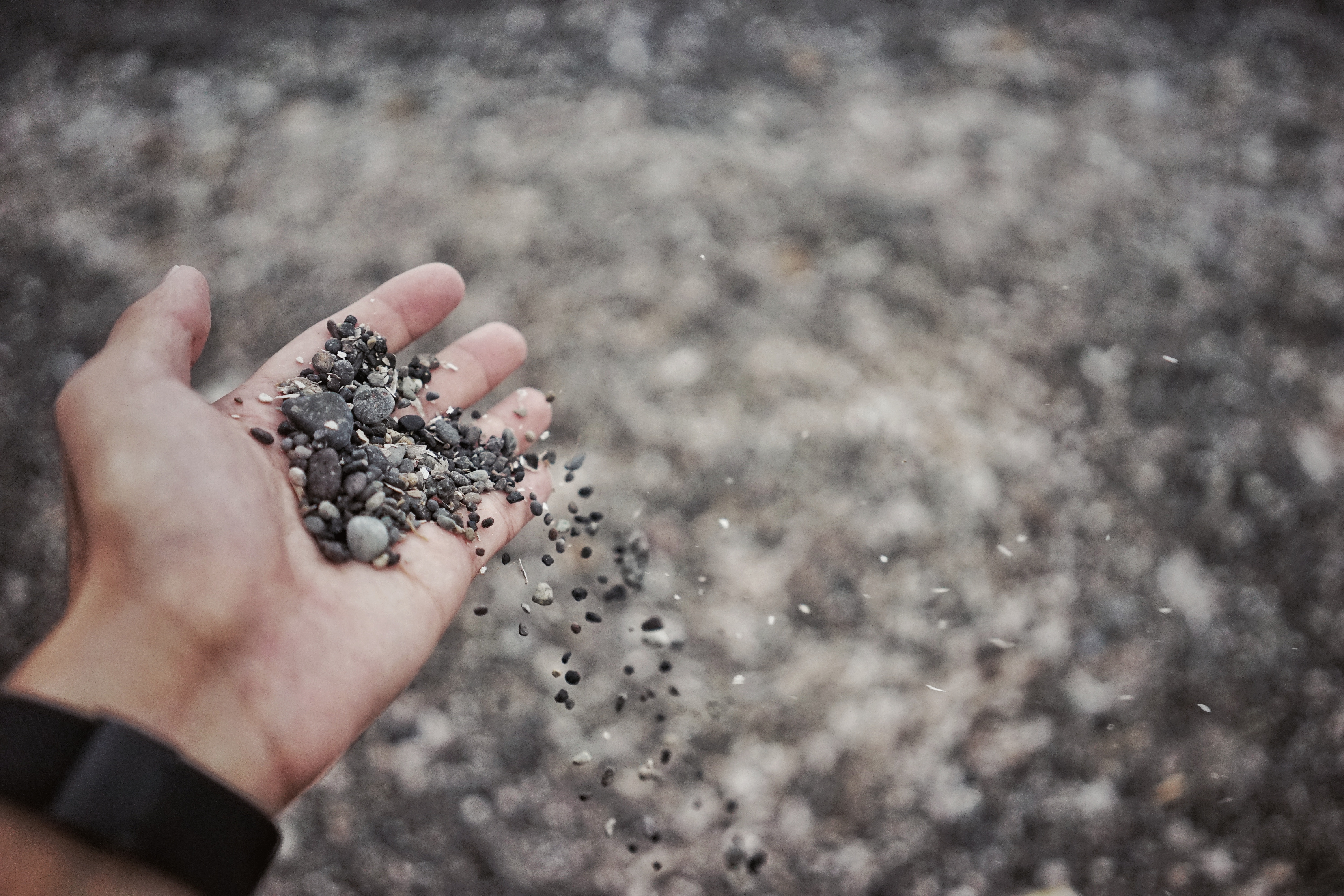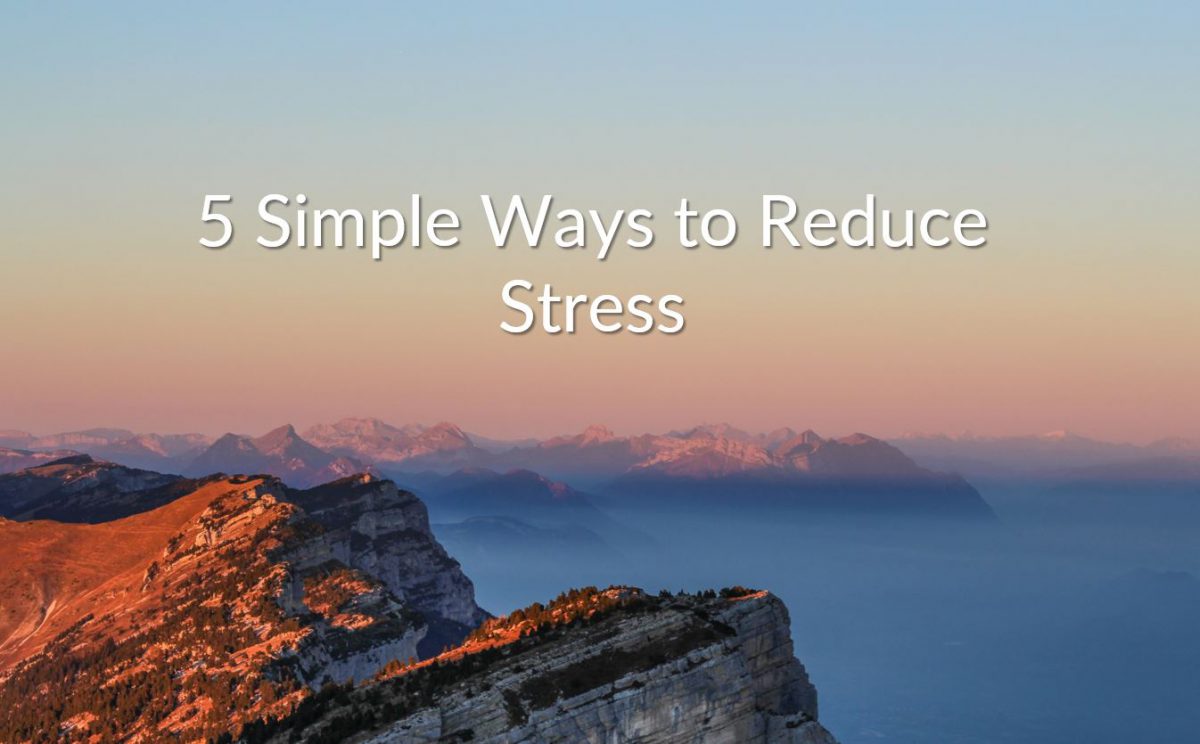November 2017
A little bit of stress can be a good thing (has a last-minute deadline ever spurred you into action?), but too much stress can sometimes get the better of us. Chronic stress, when we feel stressed all the time for a long period of time, can have a negative impact on our mental and physical wellbeing.
The good news is that there are some simple ways to lower our stress levels. It probably goes without saying that eating well, making time for whatever exercise suits you best (even a 10 minute walk in the fresh air at lunchtime can work wonders), and taking steps to improve your sleep can all combat stress.
Here are some other ideas to help reduce stress:
1. Use your breath to turn on your built-in relaxation system
You’ve probably heard of the “fight or flight” response that kicks in when we are stressed or anxious, but did you know that we also have our own built-in “relaxation” system (the parasympathetic nervous system)? There are lots of ways we can activate our relaxation response, and one of the easiest is by changing our breathing patterns.
Try 7-11 breathing: breathe in through the nose for a count of 7, and then out through the mouth for a count of 11, and repeat for about a minute in total. Don’t get too hung up on counting, the main thing is to try to make your out-breath last longer than your in-breath. If you can, breathe into your belly (place a hand on your abdomen and see if you can feel it expand as you breathe in).
2. Try some time travel
If something is worrying you, ask yourself: will this still be stressing me a month or a year from now? Just posing this simple question can often help to reduce acute stress, reminding us that this time will pass.
Don’t believe me? Then think back to what was worrying you a month ago or a year ago – chances are, your biggest worries never came to pass.
It can be interesting to make a note, every morning, of what feels like your biggest worry or stressor that day. As you add to your list each day, you can start looking back at earlier entries. You may start to notice that most of our troubles and worries turn out much better than we expect.

3. Focus on the present moment
There’s a growing body of evidence that mindfulness – focussing on the present – can help reduce stress and anxiety. Regular mindfulness practice can cause structural changes in the brain, which improve our ability to control our attention and regulate our emotions, helping us focus on the here and now rather than dwelling on the past or worrying about the future.
There are plenty of apps and online resources you can access to have a go at mindfulness (such as https://www.mindful.org/ or the Headspace app).
One easy exercise, that only takes a few seconds, is the “5-5-5 technique“: focus your attention on 5 things you can see, then on 5 sounds you can hear, and then on 5 things you can feel touching your skin.
People often find that focussing on one or more senses means you pay attention to what is going on around you, rather than any unhelpful thoughts buzzing around in your head. Everyone’s experience is different – for example, you may find that focussing on sounds is more calming than focussing on things you can see; that’s fine, and you can adapt this exercise in whatever way works best for you.
4. Make time for the things you enjoy
The first things we drop when we get busy are usually the things which bring us joy or satisfaction – the very things that increase our resilience and reduce stress. It’s easy to end up in a downward spiral, where the less time we allow ourselves to do the things we enjoy, the more tired and stressed we feel, and the harder it feels to make time for ourselves. When we are only left with what we perceive to be the essentials (work, chores, other seemingly-inescapable commitments), life can feel fairly joyless and it’s easy for stress to take over.
I know, you’re thinking “But I don’t have time to go for a swim/ do the gardening/ go to that class!” Remember that making time for ourselves can be just what we need to do to refresh ourselves, feel better able to handle things, and have more energy to give to others.
5. Three things each day…
At the end of each day, take a minute or two to note down 3 things that you are grateful for that day – these can be small things (a friendly checkout assistant, or your bus coming on time), especially if it’s been a difficult day, or bigger ones; it doesn’t matter. If you can write these in a diary or journal, great; but even just taking the time to consciously find at least 3 things you are grateful for is helpful. Doing this at the end of the day can help “re-frame” the day in your mind, and help improve wellbeing.
A little bit of stress from time to time is an unavoidable part of modern life, but it doesn’t have to become the norm. For more information on how you can learn to control stress and anxiety in your life, click here.
If your stress is part of a longer-term feeling of anxiety or depression, or if you find yourself turning to drugs or alcohol to cope, consider talking to your GP.

